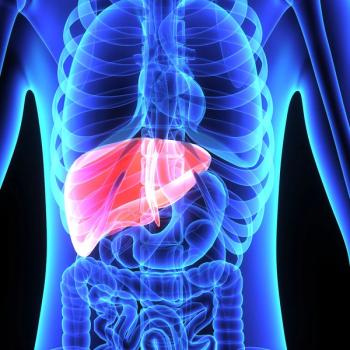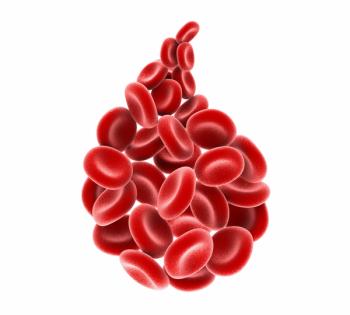
According to an expert from Johns Hopkins Sidney Kimmel Comprehensive Cancer Center, radium-223 shows positive efficacy and safety findings for patients with metastatic castration-resistant prostate cancer.

Your AI-Trained Oncology Knowledge Connection!


According to an expert from Johns Hopkins Sidney Kimmel Comprehensive Cancer Center, radium-223 shows positive efficacy and safety findings for patients with metastatic castration-resistant prostate cancer.

The combination is also associated with a manageable toxicity profile in the second and subsequent treatment lines for patients with advanced renal cell carcinoma.

An expert from Vanderbilt University Medical Center says that patients with relapsed/refractory multiple myeloma may be able to live a normal life following response to salvage treatment with bispecific monoclonal antibodies.

A recent phase 3 trial of the combination included a total of 398 patients with metastatic castration-resistant prostate cancer, unselected for homologous recombination repair gene alterations, in the safety cohort.

For patients with early-stage non–small cell lung cancer, the addition of pembrolizumab to neoadjuvant platinum-based chemotherapy followed by resection and adjuvant pembrolizumab as a monotherapy results in a significant improvement in event-free survival and pathological response.

The treatment discontinuation rate was 30.4% for darolutamide, 40.8% for enzalutamide, and 46.0% for apalutamide among patients with nonmetastatic prostate cancer, according to a recent analysis.

Results from the phase 2b HERIZON-BTC-01 trial show positive efficacy and safety responses in patients with locally advanced, unresectable or metastatic biliary tract cancer.

Patients with unresectable hepatocellular carcinoma receiving single tremelimumab regular interval durvalumab have a feasible immune-related adverse effect profile.

Findings from the phase 3 NAPOLI 3 trial support NALIRIFOX as a novel reference regimen for first-line metastatic pancreatic ductal adenocarcinoma.

Maintenance bevacizumab plus durvalumab and olaparib appears to produce a progression-free survival benefit among those with HRD-negative advanced ovarian cancer in the phase 3 DUO-O trial.

Older patients with hormone receptor–positive, HER2-negative, high-risk early breast cancer maintain a clinically meaningful absolute reduction in risk of distant relapse and invasive disease following treatment with abemaciclib and endocrine therapy.

A real-world population of patients with relapsed/refractory B-cell acute lymphoblastic leukemia are reported to have had a high rate of complete remissions following treatment with brexucabtagene autoleucel.

Obecatagene autoleucel also appears to result in a high rate of minimal residual disease negativity in a population of patients with relapsed/refractory B-cell acute lymphoblastic leukemia.

Patients with highly transfusion dependent, relapsed/refractory myelodysplastic syndrome appear to have long-lasting transfusion independence and increased hemoglobin following treatment with imetelstat.

Tucatinib plus trastuzumab represents a valuable, novel option for HER2-positive, RAS wild-type, unresectable or metastatic colorectal cancer that is chemotherapy refractory, according to the authors of the phase 2 MOUNTAINEER trial.

The Molecular International Prognostic Scoring System appears to improve prognostic discrimination across all clinical end points compared with other scores in patients with myelodysplastic syndromes.

Simple hysterectomy may become the new standard of care for patients with low-risk, early-stage cervical cancer, according to an expert from Université Laval in Quebec City, Canada.

Results from the phase 3 NATALEE trial investigating ribociclib plus endocrine therapy may change practice for the treatment of hormone receptor–positive or HER2-negative early breast cancer, according to an expert from the University of Chicago Medicine.

The association between use of a telegenetics service and lower likelihood of germline testing was statistically significant among black veterans with cancer, according to a recent retrospective cohort study.

Andrew J. Armstrong, MD, MSc, spoke about the recent approval of olaparib plus abiraterone acetate and prednisone in patients with BRCA-mutant metastatic castration-resistant prostate cancer.

Data from a retrospective cohort study indicate that nearly all patients receiving chemotherapy for small cell lung cancer in the community setting appear to experience myelosuppressive toxicities.

Zanubrutinib appears to produce significantly better progression-free survival and overall cardiac safety compared with ibrutinib in the treatment of patients with relapsed/refractory chronic lymphocytic leukemia.

Patients with BRCA-mutated metastatic castration-resistant prostate cancer can now receive treatment with olaparib plus abiraterone/prednisone or prednisolone following the combination’s approval by the FDA.

Data from a cohort study suggest MGMT promoter methylation could serve as a stratification factor for patients with low-grade and anaplastic gliomas harboring IDH–wild-type or IDH-mutant and co-deleted tumors.

The safety review committee of the phase 1/2 Acclaim-1 trial identifies a recommended phase 2 dose of quaratusugene ozeplasmid plus osimertinib in the management of advanced non–small cell lung cancer.

Data from the phase 3 CheckMate 816 trial support the European Medicines Agency’s Committee for Medicinal Products for Human Use recommendation to approve nivolumab plus platinum-based chemotherapy as a treatment for resectable non–small cell lung cancer.

Fifteen-year follow-up data suggest the importance of considering the trade-offs between risks and benefits of active monitoring, prostatectomy, and radiotherapy for localized prostate cancer.

The FDA sets a Prescription Drug User Fee Act date of November 25, 2023 for lifileucel in the treatment of patients with advanced melanoma.

Findings from the registrational phase 1/2 TRIDENT-1 trial support the new drug application for repotrectinib in the treatment of those with ROS1-positive advanced or metastatic non–small cell lung cancer.

For clinicians practicing in the community, constant communication and education from those in institutions may help to produce the best quality of care for patients with multiple myeloma.